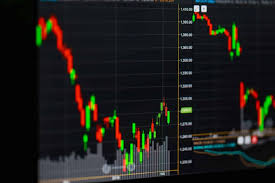
Forex Trading vs Stock Trading: Understanding the Differences
Forex trading and stock trading are two of the most popular forms of financial trading available today. While both offer opportunities for investors to make significant profits, they operate in fundamentally different ways, which can lead to vastly different trading experiences and outcomes. In this article, we will explore the key differences between forex trading and stock trading, helping you understand which option might be better suited to your investment strategy. If you’re looking to jump into trading, consider checking out forex trading vs stock trading Top Trading Platforms that cater to your specific needs.
1. Market Hours and Accessibility
One of the most significant differences between forex and stock trading is the hours during which each market operates. The forex market is open 24 hours a day, five days a week, enabling traders to buy and sell currencies at any time. This continuous accessibility allows for greater flexibility and may suit those who prefer to trade outside of conventional working hours.
In contrast, stock trading is typically limited to regular exchange hours, which generally fall between 9:30 AM and 4:00 PM Eastern Time on weekdays. Some brokers offer after-hours trading, but the options and liquidity during these times can be limited. As a result, stock traders may have less opportunity to react to significant news events that could impact their investments outside of standard trading hours.
2. Market Liquidity
Liquidity refers to how easily an asset can be bought or sold without affecting its price. The forex market is renowned for its high liquidity, particularly for major currency pairs such as EUR/USD and USD/JPY. This high liquidity means that traders can enter and exit positions with ease, and the price impact of their trades is usually minimal.
Stock markets can also be liquid, but this can vary significantly between different stocks. Major companies with high trading volumes, such as those included in the S&P 500, may see high liquidity, while smaller or less frequently traded stocks might not. This lack of liquidity can lead to wider spreads and higher transaction costs for stock traders, making forex often more appealing for active traders.

3. Leverage and Margin
Leverage allows traders to control a larger position with a smaller amount of capital. The forex market typically offers significantly higher leverage compared to stock trading. In many cases, forex brokers provide leverage ratios that can reach up to 200:1 or even higher. This means that traders can open positions that are substantially larger than their initial investment, which can amplify profits but also increases the risk of significant losses.
Stock trading generally offers lower leverage, often around 2:1 or 4:1, depending on the broker and account type. The lower leverage in stock trading can reduce risk exposure, making it a safer option for conservative investors, but it also means that traders need more capital to achieve the same potential returns as in forex trading.
4. Assets and Diversification
In forex trading, traders deal primarily with currency pairs. This concentrated focus means that successful forex trading requires a deep understanding of global economic factors, geopolitical events, and market sentiment regarding currency fluctuations. While this intense focus can lead to substantial gains, it may also limit diversification within a trader’s portfolio.
Stock trading offers a broader range of assets to trade, including shares from various sectors such as technology, healthcare, finance, and more. This diversity allows stock traders to build a more balanced portfolio and hedge against risks associated with specific sectors or economic changes. For those interested in building a portfolio that captures different market segments, stock trading might be the more favorable option.
5. Analysis Techniques
Both forex and stock traders can employ various forms of analysis to guide their trading decisions, but the nature of each market can lend itself to different techniques. Forex traders often rely heavily on technical analysis, using chart patterns, indicators, and price action to forecast future movements. Fundamental analysis also plays a critical role in forex, as factors such as interest rates, inflation, and economic data releases can significantly impact currency values.

Stock traders also use technical analysis but may place a greater emphasis on fundamental analysis. Factors such as company earnings reports, news releases, and industry performance can help stock traders make informed decisions about buying or selling shares. Each market has its unique analysis requirements, and traders should align their strategies with their specific asset class.
6. Costs and Fees
When trading in either market, costs and fees are essential components that can impact profitability. In forex trading, costs generally come in the form of spreads, which represent the difference between the buying and selling prices of a currency pair. Some brokers may also charge commissions, but these are often lower than those associated with stock trading.
In contrast, stock trading can involve various fees, including commissions, brokerage fees, and potential account maintenance fees. Although many brokers have moved toward zero-commission trading for stocks, associated costs can still add up, especially for frequent traders. It’s essential to understand the fee structures of whichever market you choose to trade.
7. Education and Skill Development
Ultimately, the choice between forex trading and stock trading may depend on a trader’s educational background, skills, and personal interests. Forex trading requires a solid understanding of macroeconomic factors and global events, making educational resources more focused on economic analysis, market dynamics, and trading strategies. Many traders opt to take courses, read books, or consume online content to develop their knowledge and skills in the forex market.
Stock trading education tends to be equally valuable but often incorporates a focus on company analysis, sector performance, and other fundamentals. Investors can find a wealth of resources, including investment courses, webinars, and books that help them navigate the stock market. Ultimately, the best approach involves continuous learning and adapting to the changing financial landscape.
Conclusion
In conclusion, both forex trading and stock trading present unique opportunities and challenges. Understanding the fundamental differences between the two can help traders make informed decisions based on their personal goals, risk appetite, and market preferences. Whether you’re drawn to the continuous nature of the forex market or the diversity of stock trading, it’s crucial to invest time in education and practice before committing significant capital. Remember that the right trading style is one that aligns with your investment strategy and personal circumstances.
